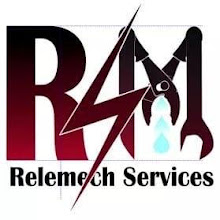Mobile phones are blamed for all kinds of health problems, ranging from brain cancer to memory loss. There's not a lot of real evidence for this, so people don't seem to be worried, and it certainly doesn't stop them from using their phones. I am sure you have come across signs and warnings about cell phone usage in Service stations. Is mobile phone usage at gas station that dangerous as displayed by the signages? How much of a risk is it to use a mobile phone at a petrol station?
When filling up refueling their cars in most petrol stations, you will be able to pay directly on your smartphone using various available apps. After driving into the forecourt, you will see more signs that indicating that you can make payments via your mobile. How is this possible with your phone off?
The only way that a mobile phone could generate a spark at a petrol station would be due to a defective battery, which is unlikely and could also occur in the case of the car’s own battery. While the possibility is remote, there is a low risk that an explosion could occur from the gases that are emitted by the hose and not from the fuel.
The truth is that the use of mobile phones is probably more dangerous as a source of distraction than as the possible source of an explosion as use of mobiles at petrol stations can also result in people being run over, carelessness with the car and other pedestrians, etc. For this reason, using them at service stations is not recommended.
References: bbc.com howitworksdaily.com
So what are the reasons for these warning signages?
Risk of incendive sparking - Mobile phones are not designed and certified for use in explosive atmospheres which exist temporarily around the pump and nozzle during refuelling as well as around the fill and vent pipes during petrol deliveries. Such use is expressly forbidden by law under the conditions of the petroleum licence and associated guidance. Whilst the risk of incendive sparking from mobile phones is low, they are not intrinsically safe devices and should not be used in those hazardous areas that exist on a forecourt.The fear is that the electromagnetic (EM) radiation from a mobile phone could impart enough energy to ignite petrol vapour directly or that it could induce currents in nearby metal objects and trigger a spark with the same effect. However, this has been discredited by studies done by various bodies including the famous TV show myth busters as most none of Petrol station fire has ever been directly linked to a mobile phone.
Risk of incendive sparking - Mobile phones are not designed and certified for use in explosive atmospheres which exist temporarily around the pump and nozzle during refuelling as well as around the fill and vent pipes during petrol deliveries. Such use is expressly forbidden by law under the conditions of the petroleum licence and associated guidance. Whilst the risk of incendive sparking from mobile phones is low, they are not intrinsically safe devices and should not be used in those hazardous areas that exist on a forecourt.The fear is that the electromagnetic (EM) radiation from a mobile phone could impart enough energy to ignite petrol vapour directly or that it could induce currents in nearby metal objects and trigger a spark with the same effect. However, this has been discredited by studies done by various bodies including the famous TV show myth busters as most none of Petrol station fire has ever been directly linked to a mobile phone.
The only way that a mobile phone could generate a spark at a petrol station would be due to a defective battery, which is unlikely and could also occur in the case of the car’s own battery. While the possibility is remote, there is a low risk that an explosion could occur from the gases that are emitted by the hose and not from the fuel.
The truth is that the use of mobile phones is probably more dangerous as a source of distraction than as the possible source of an explosion as use of mobiles at petrol stations can also result in people being run over, carelessness with the car and other pedestrians, etc. For this reason, using them at service stations is not recommended.
References: bbc.com howitworksdaily.com
Read, Learn and share.













